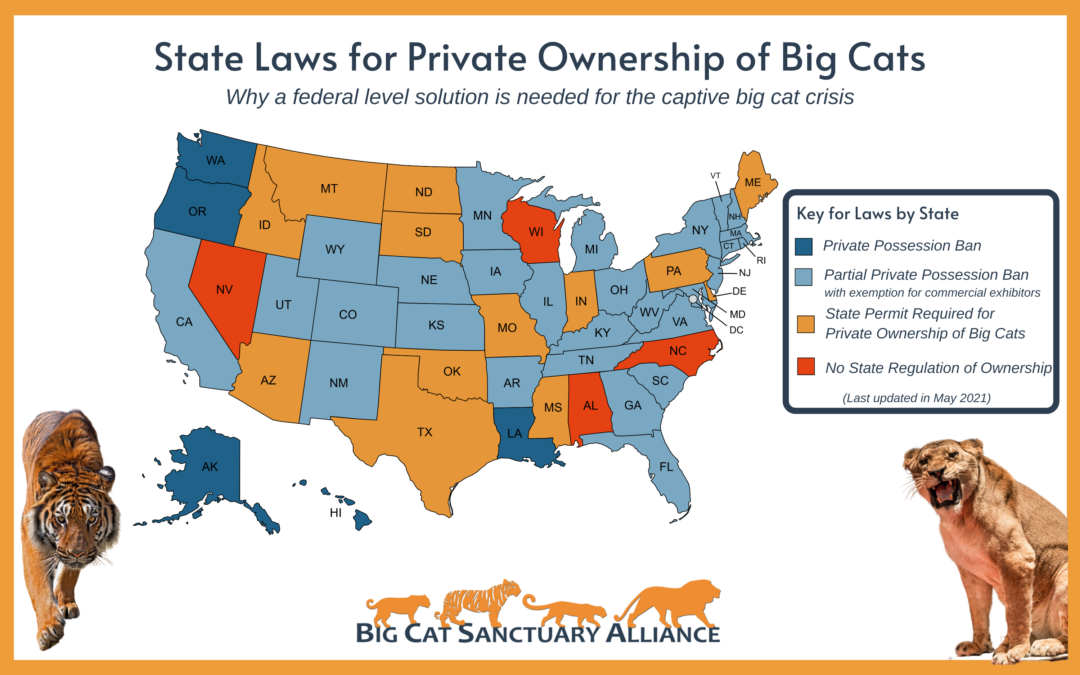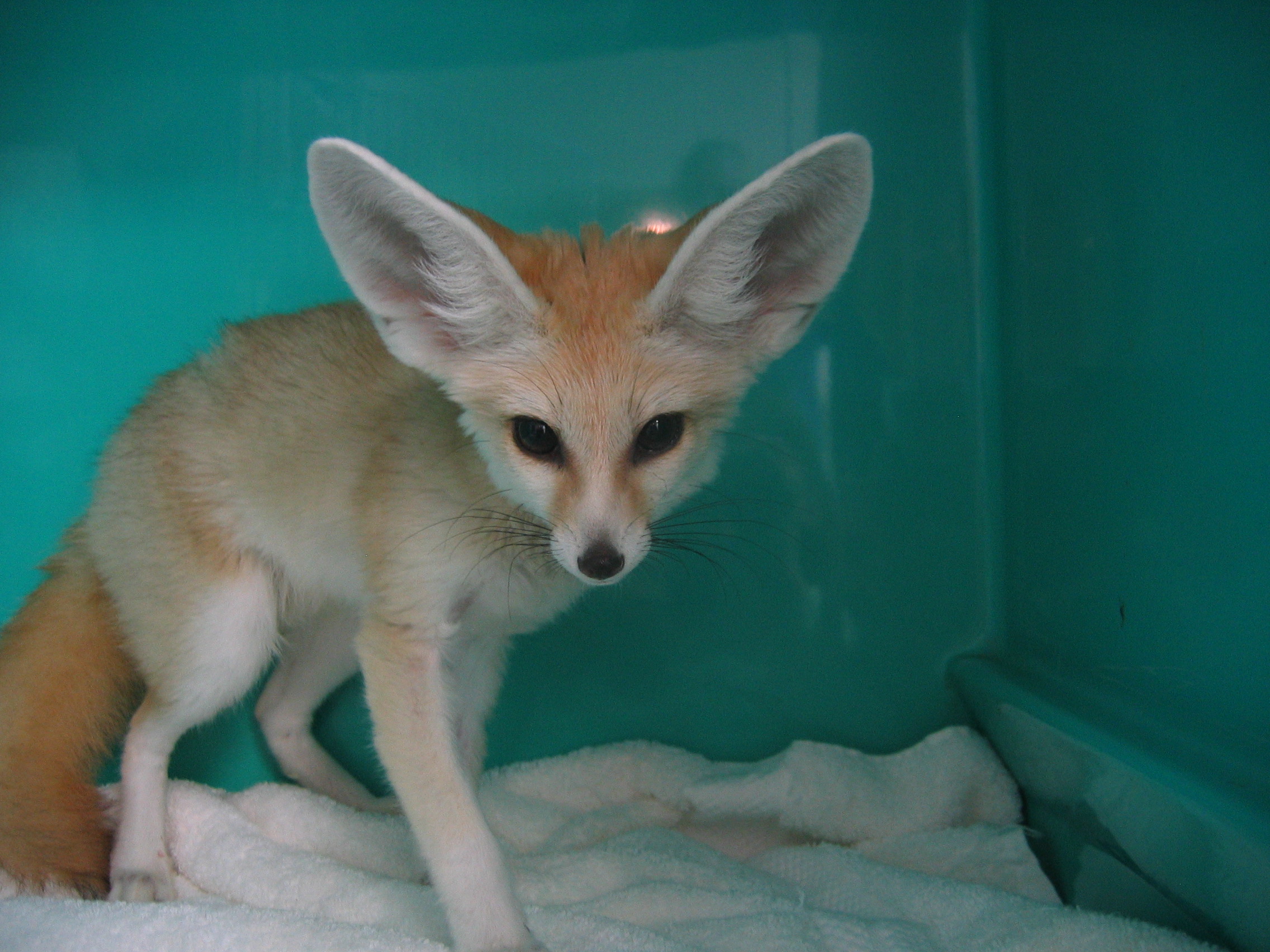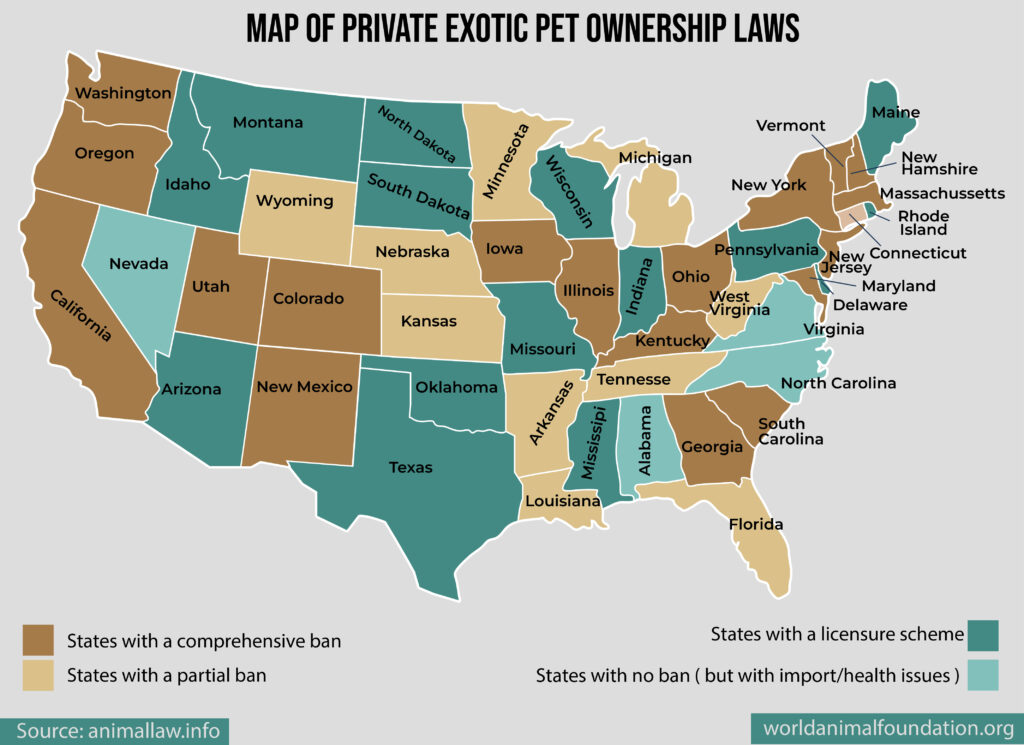In the United States, laws on exotic animals vary by state. Some states, like Texas, require a certificate of registration to own dangerous wild animals such as wild cats, bears, and chimpanzees.
On the other hand, states like Arizona have more lenient laws allowing for the ownership of exotic animals like wolfdogs and pythons. Possession of exotic animals as pets is often restricted due to the potential health risks they pose to humans.
Zoonotic diseases, such as Herpes B and Salmonellosis, can be transmitted from these animals to humans. Additionally, certain exotic animals, including large felines, wolves, and non-human primates, are generally prohibited as pets. However, regulations for exotic pet ownership within each state can be inconsistent and are regulated by the USDA.

Credit: bigcatrescue.org
Laws On Exotic Animals For Each State
Discover the laws pertaining to exotic animals in each state, from Texas where a certificate of registration is required to own dangerous wild animals, to Arizona where some exotic animals like wolfdogs and pythons are permitted. Each state has its own regulations, and it is essential to understand them before considering owning an exotic pet.
Reasons For State Laws On Exotic Animals
State laws on exotic animals serve various purposes, including protecting public safety, preventing the spread of diseases, preserving native wildlife populations, and ensuring the welfare of these unique creatures.Illegal Or Restricted Animals In Different States
Each state has its own list of animals that are either completely illegal or restricted and require special permits to own. Some common examples include monkeys, tigers, ferrets, alligators, and certain types of turtles. It’s important for potential exotic pet owners to familiarize themselves with their state’s regulations to avoid legal consequences.Variations In Exotic Animal Laws By State
Exotic animal laws can vary greatly from state to state. Some states have enacted strict bans on owning certain species, while others have more lenient restrictions or require permits and licenses. The reasons for these variations can include the region’s wildlife population, past incidents involving dangerous animals, and the state’s overall approach to wildlife conservation. To illustrate the differences, here is a brief overview of two states:Texas:
In Texas, owning a dangerous wild animal requires a certificate of registration. This category includes wild cats, bears, coyotes, gorillas, chimpanzees, and other non-domesticated species. The state’s laws prioritize public safety while acknowledging the unique circumstances that come with owning exotic animals.Arizona:
Arizona allows many exotic animals, such as wolfdogs, Savannah cats, chinchillas, pythons, domestic water buffalo, and domestic American bison. The state’s laws reflect a different perspective, considering factors like habitat suitability and the ability of owners to provide appropriate care for these animals. It is crucial for individuals considering owning an exotic animal to thoroughly research their state’s laws and regulations before making any decisions. Understanding these laws not only ensures compliance with legal requirements but also promotes the overall welfare of both the animals and the public.
Credit: www.exoticvetclinic.com

Credit: worldanimalfoundation.org
Frequently Asked Questions For Laws On Exotic Animals For Each State
What States Is It Legal To Own Exotic Pets?
The legal states to own exotic pets vary. For example, Texas requires a certificate of registration for dangerous wild animals. Arizona allows some exotic animals like wolfdogs and chinchillas. Each state has different regulations.
Why Do States Outlaw Exotic Pets?
States outlaw exotic pets due to the health risks they pose to humans. Exotic animals can carry zoonotic diseases, such as Herpes B and Salmonellosis, which are communicable to humans. Additionally, owning exotic pets like lions, tigers, and bears can be dangerous and potentially harmful to both the owner and the animal.
Which Category Of Pets Is Usually Illegal Or Restricted In Many States?
Exotic animals, including Felidae, Canidae, and Ursidae families, are typically illegal or restricted in many states.
What State Has The Most Exotic Animals?
Texas has the most exotic animals. A certificate of registration is required to own dangerous wild animals such as wild cats, bears, coyotes, gorillas, chimpanzees, and other non-domesticated species.
Conclusion
The laws on exotic animals vary from state to state in the United States. It is important for individuals to research the specific regulations in their state before considering owning an exotic pet. Many states have restrictions and require permits or certificates for owning dangerous wild animals.
These laws are in place to protect both the animals and the public from potential health risks and safety issues. Understanding and abiding by these laws is crucial for responsible exotic pet ownership.

